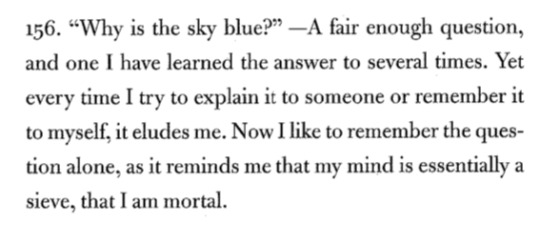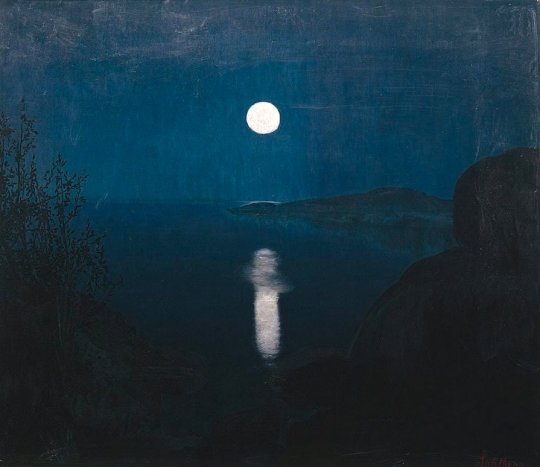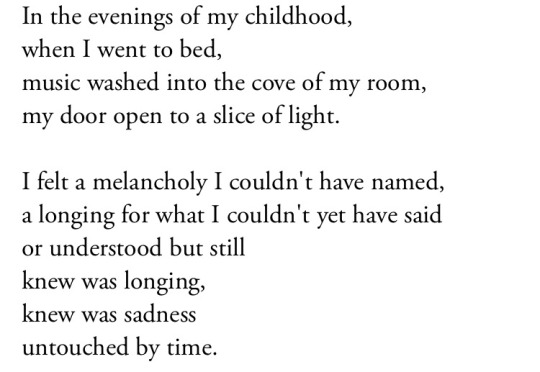❥Annie / Head in the clouds / This is a space where I'll sporadically post inspiration + amusements + things I admire. "How astonishing it is that language can almost mean, and frightening that it does not quite."
Don't wanna be here? Send us removal request.
Text



Bluets - Maggie Nelson / Joe Rudi Pielichaty, Un Sedicesimo 40: Blue Skies, Corraini Edizioni, Mantova, 2016
6K notes
·
View notes
Quote
I caught my breath and called that life… I was pirouette and flourish, I was filigree and flame.
Rita Dove, from ‘Testimonial’ featured in On the Bus with Rosa Parks: Poems (via watchoutforintellect)
340 notes
·
View notes
Quote
But being lonely and being alone are not the same, and [Elizabeth] Bishop recognized from a young age that there was something special, even salvific, about the latter. ‘There is a peculiar quality about being alone, an atmosphere that no sounds or persons can ever give,’ she wrote in [her] 1929 essay, “On Being Alone,” ‘It is as if being with people were the Earth of the mind, the land with its hills and valleys, scent and music: but in being alone, the mind finds its Sea, the wide, quiet plane with different lights in the sky and different, more secret sounds.’ I understood this sentiment well, the special beauty of the blue hours when you are, by choice, alone, and the candle of your self burns in a way it never quite can when you are with someone else.
Gabrielle Bellot, from “Alone with Elizabeth Bishop,” NYR Daily (20 September 2018)
810 notes
·
View notes
Photo

“Do they experience the entire cold sorrow acre of human history as one undifferentiated lunatic jabberwocking back and forth from belligerence to tender care?” –Anne Carson, Red Doc>
215 notes
·
View notes
Text
how objects, like nicknames, stick around long after their sources
how people don’t vanish when you stop loving them
— Alina Pleskova, from “I Forget What I Returned For,” published in b l u s h
689 notes
·
View notes
Quote
Oh but I’m so tired— I sometimes think people can’t know what they do to me when they ask me to ‘see’ them: how they hold me in the scorching light: how I dry & shrivel: how I lie awake at night longing for rest.
The Diary of Virginia Woolf, Volume Four: 1931-1935 (via salemwitchtrials)
505 notes
·
View notes
Quote
Grief turns out to be a place none of us know until we reach it. We anticipate (we know) that someone close to us could die, but we do not look beyond the few days or weeks that immediately follow such an imagined death. We misconstrue the nature of even those few days or weeks. We might expect if the death is sudden to feel shock. We do not expect the shock to be obliterative, dislocating to both body and mind. We might expect that we will be prostrate, inconsolable, crazy with loss. We do not expect to be literally crazy, cool customers who believe that their husband is about to return and need his shoes. In the version of grief we imagine, the model will be “healing.” A certain forward movement will prevail. The worst days will be the earliest days. We imagine that the moment to most severely test us will be the funeral, after which this hypothetical healing will take place. When we anticipate the funeral we wonder about failing to “get through it,” rise to the occasion, exhibit the “strength” that invariably gets mentioned as the correct response to death. We anticipate needing to steel ourselves the for the moment: will I be able to greet people, will I be able to leave the scene, will I be able even to get dressed that day? We have no way of knowing that this will not be the issue. We have no way of knowing that the funeral itself will be anodyne, a kind of narcotic regression in which we are wrapped in the care of others and the gravity and meaning of the occasion. Nor can we know ahead of the fact (and here lies the heart of the difference between grief as we imagine it and grief as it is) the unending absence that follows, the void, the very opposite of meaning, the relentless succession of moments during which we will confront the experience of meaninglessness itself.
Joan Didion, The Year of Magical Thinking (via days-of-reading)
220 notes
·
View notes
Text
Oh no, what happened to the line breaks in this poem...?
“Johnny, the kitchen sink has been clogged for days, some utensil probably fell down there. And the Drano won’t work but smells dangerous, and the crusty dishes have piled up waiting for the plumber I still haven’t called. This is the everyday we spoke of. It’s winter again: the sky’s a deep, headstrong blue, and the sunlight pours through the open living-room windows because the heat’s on too high in here and I can’t turn it off. For weeks now, driving, or dropping a bag of groceries in the street, the bag breaking, I’ve been thinking: This is what the living do. And yesterday, hurrying along those wobbly bricks in the Cambridge sidewalk, spilling my coffee down my wrist and sleeve, I thought it again, and again later, when buying a hairbrush: This is it. Parking. Slamming the car door shut in the cold. What you called that yearning. What you finally gave up. We want the spring to come and the winter to pass. We want whoever to call or not call, a letter, a kiss—we want more and more and then more of it. But there are moments, walking, when I catch a glimpse of myself in the window glass, say, the window of the corner video store, and I’m gripped by a cherishing so deep for my own blowing hair, chapped face, and unbuttoned coat that I’m speechless: I am living. I remember you.”
— Marie Howe, “What The Living Do” (via notebookings)
2K notes
·
View notes
Quote
Only a dream links me to myself— The hazy and belated dream Of what I should have been—a wall around my abandoned garden.
Fernando Pessoa, from The Scaffold in “A Little Larger Than The Entire Universe: Selected Poems” [translated and edited by Richard Zenith] (via adrasteiax)
557 notes
·
View notes
Text
“As a woman I have no country. As a woman I want no country.” —Virginia Woolf, Three Guineas
“I was made for another planet altogether.” —Simone de Beauvoir, The Woman Destroyed
“(I-woman, escapee)” —Hélène Cixous, The Laugh of the Medusa
19K notes
·
View notes
Text
You want to go back to the boardwalk amusements of your youth and ride, again, the Gravitron, that hulking spaceship that spun like a centrifuge. That’s the best you can do for now. It’s your life. It is spinning, and you are in it.
— Catherine Pierce, from “Daily,” The Girls of Peculiar
121 notes
·
View notes
Photo

“I think that if you bang your head against the wall trying to create, you’re going to resent the process of creation. Usually when you reach an impasse it’s a signal to move on to another thing. Maybe you haven’t slept in a while. Maybe you need some time to ponder, to just stare at the wall. Maybe you need to live, truly be alive for a little and not near a computer. Maybe you need to read, see, watch—to refill your well.”
—Fatimah Asghar, in “Wilder Forms: Our Fourteenth Annual Look at Debut Poets” in the January/February issue of Poets & Writers Magazine (2019); read the extended version on pw.org!
203 notes
·
View notes








